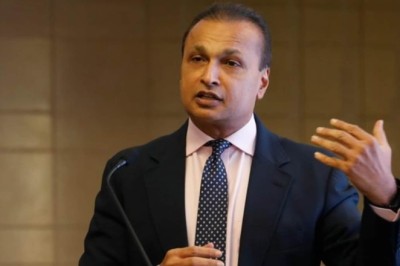"Pretty Workable": Ex-OpenAI Employee On Company's Email-Free Workplace
ShowQuick Read Summary is AI-generated, newsroom-reviewed
- Calvin French-Owen received only about 10 emails during his year at OpenAI
- Slack was the primary communication tool, replacing email entirely
- OpenAI grew from 1,000 to over 3,000 employees during his tenure
A former OpenAI employee has shed light on the inner workings of ChatGPT's parent business, revealing a practically email-free workplace.
Calvin French-Owen, who worked at OpenAI from May 2024 to June 2025, claimed that during his tenure at the company, he received only about 10 emails.
In a detailed blog post, Mr French-Owen claimed that Slack, not email, was OpenAI's primary means of employee communication.
"An unusual part of OpenAI is that everything, and I mean everything, runs on Slack," he wrote in the blog post published on Tuesday.
"There is no email. I maybe received 10 emails in my entire time there. If you aren't organised, you will find this incredibly distracting," Mr French-Owen added.
Compared to other digital titans, this policy of prioritising Slack over email is unconventional. Despite Slack's shortcomings, which Mr French-Owen described as "incredibly distracting," he said that it can be "pretty workable" if users carefully control channel overload and notification settings.
He said his 14-month employment with the company was demanding, covert, and unrelentingly high-pressure, with "vibes" on social media carrying unexpected weight.
He characterised a fast-paced, bottom-up culture in which projects come up on their own, move quickly, and occasionally run into each other.
"OpenAI is incredibly bottoms-up, especially in research... Rather than a grand 'master plan', progress is iterative and uncovered as new research bears fruit," Mr French-Owen said.
Speaking of OpenAI's culture, Mr French-Owen said the company expanded exponentially.
There were just over 1,000 employees at the company when he started, and after a year, it had surpassed 3,000, and Mr French-Owen was among the top 30 per cent by tenure.
"Nearly everyone in leadership is doing a drastically different job than they were 2-3 years ago," he added.
He also refuted the claim that OpenAI was careless with security. In addition to more abstract, long-term risks, Mr French-Owen observed a strong emphasis on practical risks, such as political bias, hate speech, and quick injection.
Mr French-Owen, a former startup founder whose company, Segment, was purchased by Twilio, claimed that he left OpenAI because he was exhausted and had a strong desire to lead rather than follow, and not because of any drama.
Although he expressed "deep conflict" about quitting, he said that he felt "lucky" to have been a member of the elite team developing Codex, OpenAI's grandiose software engineering agent.



















Comments
0 comment